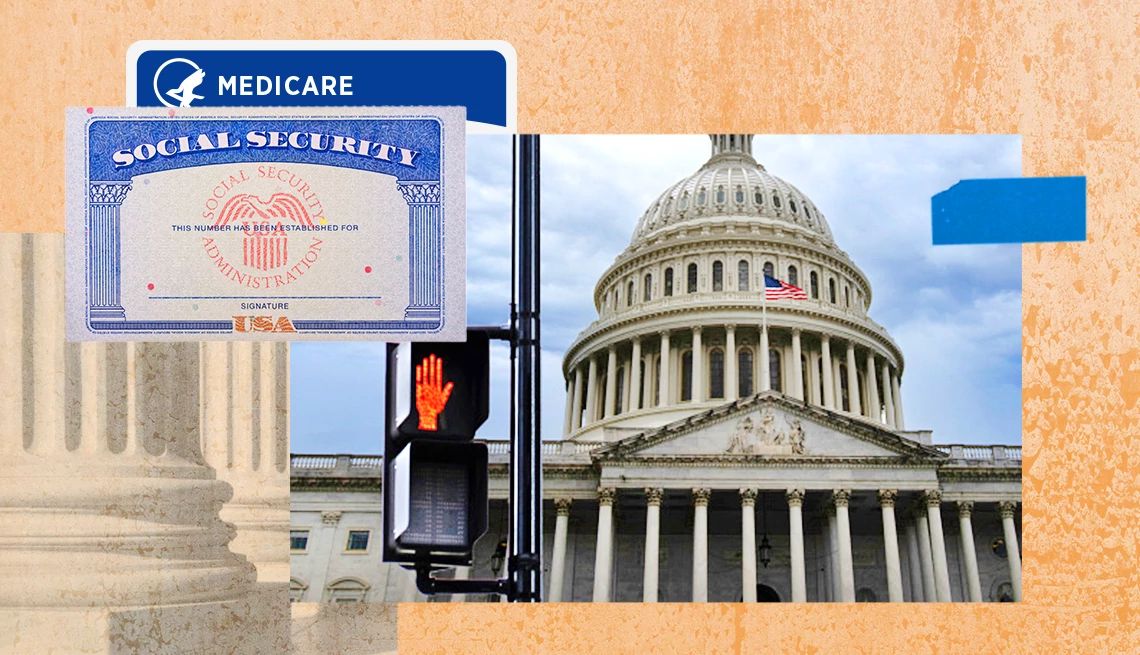AARP Hearing Center


The U.S. government officially shut down on Oct. 1 after lawmakers failed to pass a budget measure to keep federal programs and offices open.
Now, agencies must stop any government work that is unfunded. That also means federal employees whose work is not related to public safety or deemed essential by law will be furloughed, leaving agencies with only a few staff members to carry out critical operations.
Federal benefit programs like Social Security and Medicare are considered mandatory spending and will continue to issue payments, although customer service may be less responsive and certain services, such as new card processing, may be delayed.
However, the longer a shutdown goes on, the more uncertain these outcomes are, as programs that rely on backup funding see their reserves dwindle.
To discuss the possible impact of the shutdown on programs and services older adults rely on, we sat down with Bill Sweeney, AARP’s senior vice president of government affairs.
This interview has been edited for length and clarity.
So the government shut down. How long is this likely to last?
It’s really hard to predict because circumstances can always change.
Join Our Fight to Protect Older Americans
Here’s what you can do to help:
- Sign up to become an AARP activist for the latest news and alerts on issues you care about.
- Find out more about how we’re fighting for you every day in Congress and across the country.
- AARP is your fierce defender on the issues that matter to people 50-plus. Become a member or renew your membership today.
A shutdown that lasts just a couple of days, or maybe a week, is a different thing entirely than one that lasts for a long time. The longest one we’ve ever had lasted 35 days, and that was in 2018 through the beginning of 2019. But even then, people still got their Medicare. They still received Social Security.
The question is: How long are federal employees willing to work for free before they go looking for a new job? That is fundamentally the one backstop on a government shutdown. At some point, people say, “We’re not going to keep working [without pay].’”
How is this shutdown different from the ones we’ve had in the past? Is this likely to follow past protocols, or do you expect it to be different?
I wish I could predict this, but every shutdown is a little different, and it can change from day to day. Sometimes only part of the government is shut down, and sometimes most of the government is shut down. As with every shutdown, the White House and the Cabinet agencies have broad power to determine which parts of the government are deemed “essential,” meaning those services will continue, although the federal workers won’t be paid. That makes it incredibly difficult to predict exactly how a shutdown might affect different parts of the government.
What services are affected by a shutdown that might impact older Americans?
It’s important to remember that your Social Security payment will still come; Medicare and Medicaid should not be impacted much. Beyond that, it’s very hard to say — and what is in place one day might not be in place the next. It’s also important to remember that federal employees who are deemed “essential” during a shutdown are working without pay. If you need help, like customer service at Medicare, or you’re planning a visit to a national park or you need to renew your passport, those are things that could be impacted.





































































More From AARP
Defending What You’ve Earned
How AARP fights to protect Social Security and Medicare
Premiums to Rise as ACA Tax Credits Expire
AARP fights for tax credits that lower cost of ACA coverage
OAA Turns 60: What’s in It for You?
AARP is urging support for the landmark law that aids older adults